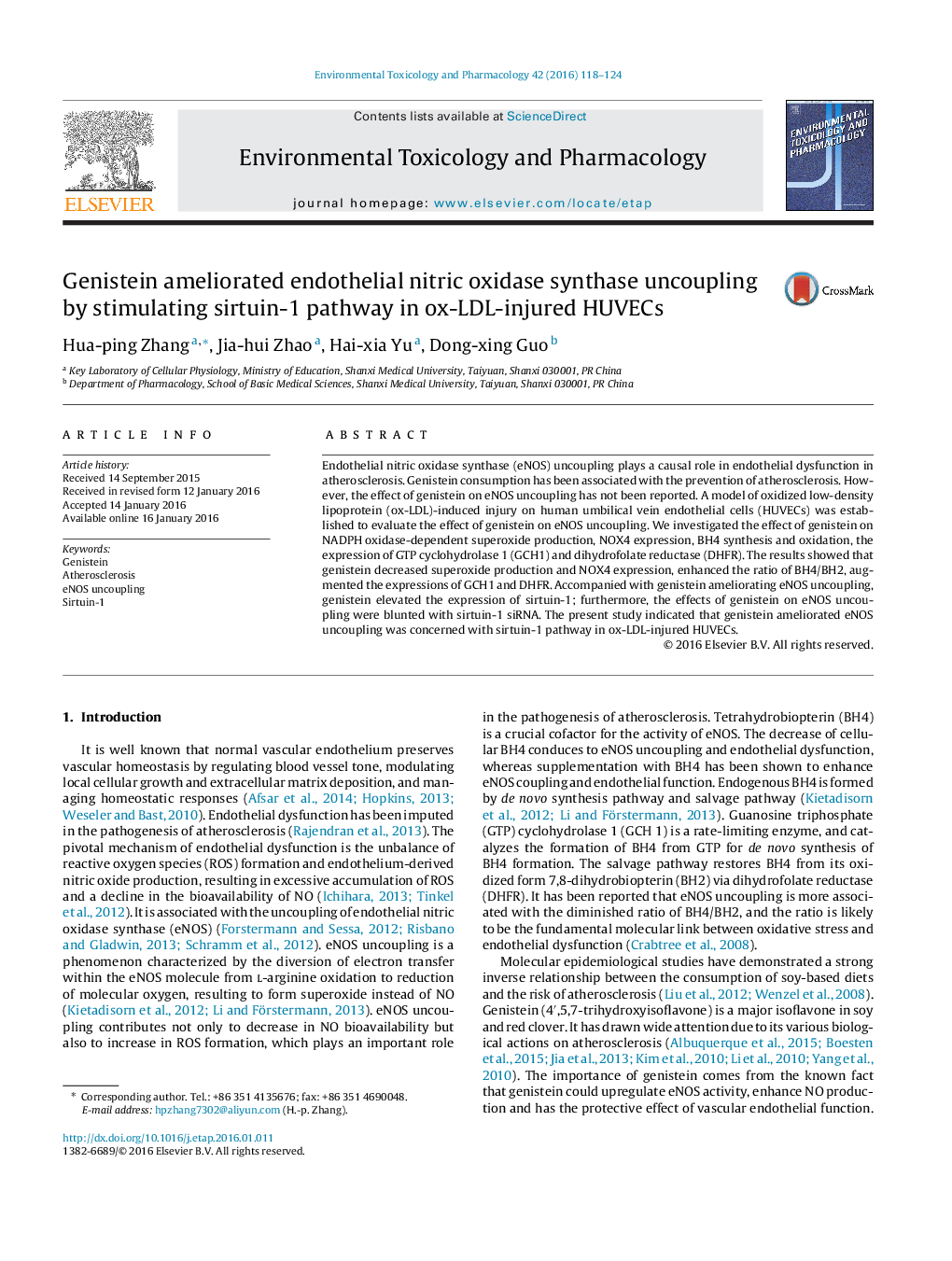| Article ID | Journal | Published Year | Pages | File Type |
|---|---|---|---|---|
| 5848679 | Environmental Toxicology and Pharmacology | 2016 | 7 Pages |
â¢Genistein decreased NADPH oxidase-dependent superoxide production and NOX4 expression in ox-LDL-induced HUVECs.â¢Genistein enhanced the radio of BH4/BH2, and the expressions of GCH1 and DHFR in ox-LDL-induced HUVECs.â¢3. The effect of genistein ameliorating eNOS uncoupling was associated with sirtuin-1 pathway in ox-LDL-induced HUVECs.
Endothelial nitric oxidase synthase (eNOS) uncoupling plays a causal role in endothelial dysfunction in atherosclerosis. Genistein consumption has been associated with the prevention of atherosclerosis. However, the effect of genistein on eNOS uncoupling has not been reported. A model of oxidized low-density lipoprotein (ox-LDL)-induced injury on human umbilical vein endothelial cells (HUVECs) was established to evaluate the effect of genistein on eNOS uncoupling. We investigated the effect of genistein on NADPH oxidase-dependent superoxide production, NOX4 expression, BH4 synthesis and oxidation, the expression of GTP cyclohydrolase 1 (GCH1) and dihydrofolate reductase (DHFR). The results showed that genistein decreased superoxide production and NOX4 expression, enhanced the ratio of BH4/BH2, augmented the expressions of GCH1 and DHFR. Accompanied with genistein ameliorating eNOS uncoupling, genistein elevated the expression of sirtuin-1; furthermore, the effects of genistein on eNOS uncoupling were blunted with sirtuin-1 siRNA. The present study indicated that genistein ameliorated eNOS uncoupling was concerned with sirtuin-1 pathway in ox-LDL-injured HUVECs.
